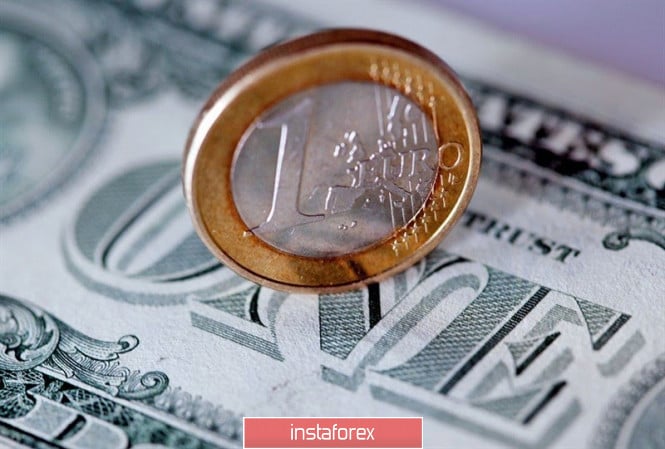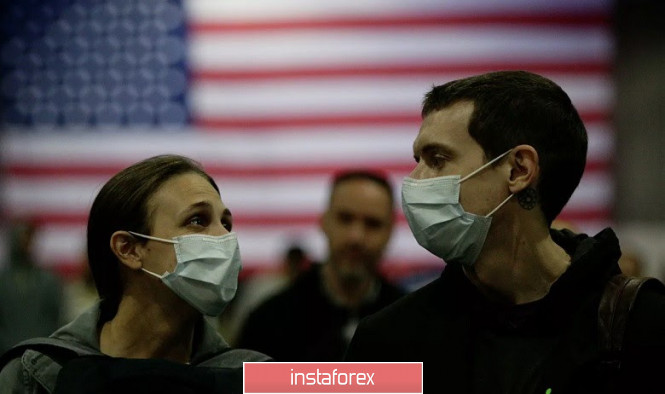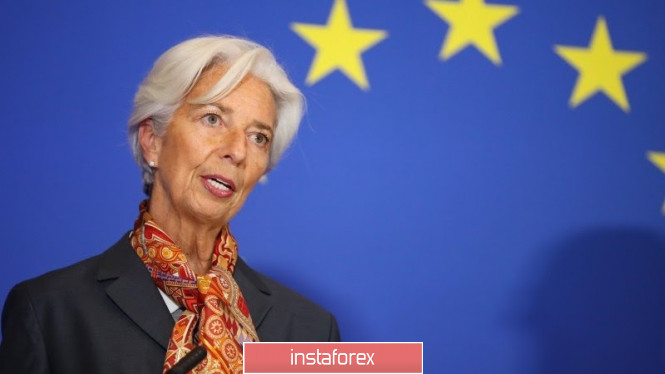
The most serious Federal Reserve interest rate cut since 2009 has shown the decisiveness of the US central bank. However, the market reaction turned out to be completely different from what the regulator expected. The main US stock indices plunged 3%, and the yield on ten-year Treasuries for the first time in history dropped below 1%. The spread of the rates of the US and German debt markets declined to the lowest level since 2017, which put pressure on the dollar and made it possible for the EUR/USD pair to rise above 1.12 for a while.
What is the matter? Why did the emergency interest rate cut by the Fed not have a proper impact on the market?
Apparently, investors doubt that Jerome Powell and his colleagues are able to cope with the coronavirus. Obviously, the virus cannot be cured by monetary measures.
"Lower rates will not stop the spread of the disease. They can help risky assets in the short term, but they look like an extremely imperfect solution to what is actually a health problem," PIMCO experts noted.
According to experts, a sharp decrease in the Fed rate is a cause for serious concern about the fate of the US economy. In addition, the regulator did not give a signal of readiness to do much more, which disappointed the financial markets.

Previous pandemics have had little impact on US economic growth. For example, the epidemics of 1957–1958 and 1968–1969 were less destructive. However, this time everything looks pretty serious. S&P Global Ratings economists have revised downward the forecast for US GDP growth in the first quarter - from 2.2% to 1%. They expect that the figure will expand by only 1% in April-June. According to Goldman Sachs analysts, things could turn out even worse. They lowered the forecast for US GDP growth to 0.9% per annum in the first quarter and to 0% in the second.
It is possible that the Fed has enabled markets themselves to answer the question of what will happen next. The continuation of the correction of the S&P 500 may finally convince investors that the hands of the Fed are short, and will force them to prepare for a recession. The gradual stabilization of US stock indices will signal a return of investor confidence in the ability of the central bank. In neither case will the greenback get any better. Continued pullback of the stock market is fraught with an outflow of capital from the United States, and the growth of quotes will reflect hopes for a further weakening of the Fed's monetary rate.
According to some analysts, the difference in interest rates of the Fed and the ECB could become the key driver of EUR/USD this year.
The market is still waiting for a decrease in the key rate in the US by another 50 basis points at the Fed meeting in March and another decrease of 25 points by the end of the year. At the same time, certain doubts remain as to whether the ECB will continue to reduce the cost of borrowing.
The question of what will be the ECB's policy in 2020 remains open to many investors.

"I'm not a dove or a hawk, I strive to be an owl," said ECB Chief Christine Lagarde at her first press conference in December 2019.
It is possible that in 2020 she may appear in all three forms.
Wise Owl
Refraining from making changes to the current monetary policy, C. Lagarde got a chance to reconcile the hawks and the doves.
She also refused additional incentives, retaining such an opportunity for the future, because the arsenal of monetary policy instruments of the ECB is already limited. As a wise owl Lagarde is worth holding this trump card up her sleeve, and not playing it right away.
The threat of additional incentives could raise pressure on the euro. Thus, during this period, the growth of EUR/USD may be limited.
Hawk, but only with the help of Germany
Last year, economic growth in the eurozone was sluggish and, most likely, in 2020 the situation will not change. However, the rise in economic activity in the region may disperse the euro and receive positive comments from Lagarde. What will contribute to this? Probably the solution to external problems, such as a slowdown in the global economy and Brexit.
However, the most significant driver may be a program of financial stimulation of the German economy. Until now, Angela Merkel has been stubbornly adhering to austerity policies, despite a significant slowdown in economic growth in the country. However, the situation may change in the future, as calls are increasingly being made to abandon the economy, not only from the ECB, but also from the Social Democratic Party of Germany. The new leadership of one of the partners of the Christian Democratic Union in the coalition has already expressed a desire to increase spending. Moreover, both the SPD and the Merkel party are afraid of strengthening the position of the "green".
There is a possibility that the German government may start a "Green New Deal", which is designed to help the environment and stimulate the national economy, which will support the euro.
Such a decision would help Lagarde breathe a sigh of relief and postpone until better times the adoption of new measures to weaken monetary policy.
Thus, it could be hawkish, but it will depend on the position of Germany.
Strategic Dove
The only statement, although not too much affecting the markets made by Lagarde, was the promise to conduct a strategic review of the ECB policy, which began in January and should be completed before the end of this year. According to its results, the regulator can change the inflation target, which at the moment is slightly below 2%.
One likely scenario is setting a target near 2%. A more flexible target level will allow prices to rise above 2%, which will not entail a tightening of the ECB policy. As a result, the euro may decline even at the moment when the target level change is announced.
An even bigger dove
A bolder measure by the ECB would be to allow the average inflation rate to stay above 2% for several years. This can offset the impact of the previous period of low inflation. Germany and other northern countries are likely to criticize such a decision, but it cannot be completely ruled out. Such a change in the ECB's mood in favor of the "dove may cause a drop in EUR/USD.
Thus, ECB Chairman Lagarde may start the year as a wise owl by taking a wait-and-see attitude, which will put pressure on EUR/USD. Then it can take a hawkish position and propose a tightening of monetary policy, however, this will depend on Germany's incentive program. And finally, the head of the ECB may return to a soft policy, which will pull down the single European currency.
The material has been provided by InstaForex Company - www.instaforex.com